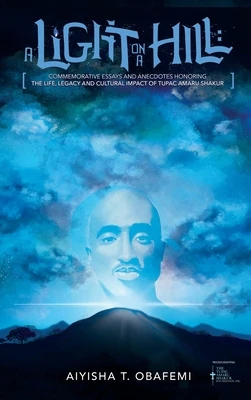
The highly anticipated anthology from music industry executive Aiyisha T. Obafemi commemorates the societal and cultural contributions of the legendary icon, Tupac Amaru Shakur in her book A Light on a Hill. The book is a compilation told through the eyes of cultural icons and influencers who were impacted by Tupac.
What inspired you to write this book?
The inspiration was Tupac. This book actually was released on Nov. 1, 2021. 2021 marked his 50th birthday and the 25th anniversary of his death. I wanted to just continue to shine the light on him and who he was. I asked some of my friends who are my family to participate and become contributors to this book. This book holds stories and offerings of love and shares what he meant to these people, how he influenced people and also sharing some of our upbringings and family stories. I thought it was very important to let people know that he still continues to make an impact on the world.
How did Tupac impact you and others?
He made an impact while he was here, and he continues to make that impact. The one thing I always admired about him is how outspoken he was. I’ve said it before, he wasn’t always right, and he knew that and sometimes he would do or say things in the heat of the moment, but then he’d come back and say that might not have been the best way to handle it. I think a lot of times people don’t realize how young he was. When you think about why he reacted to things the way he did, think about what it’s like to be a young Black man living in America. He was targeted by police and had to protect himself. It was different back then, so think about what he had to deal with over 25 years ago, and where we are now.

How did you come up with the title?
A Light on a Hill comes from the new African creed, and the tenet says, “I will keep myself clean and body dress and speech, knowing that I am the light set on a hill, a true representative of what we are building.” We’re talking about nation-building and building a Black nation for Black people. That’s one of the things that we used to recite growing up. My brother Shaka Zulu actually gave me that title because I needed one. I’m brainstorming and I’m thinking too hard, and Shaka was like, “A light on a hill.” And I was like that makes sense.
What do you want people to know about Tupac after reading this book?
Just that he was as real as they come. I don’t want to tell people what to think, but I would say get it. It’s really a great thing to have and I feel like it’s love in here.















